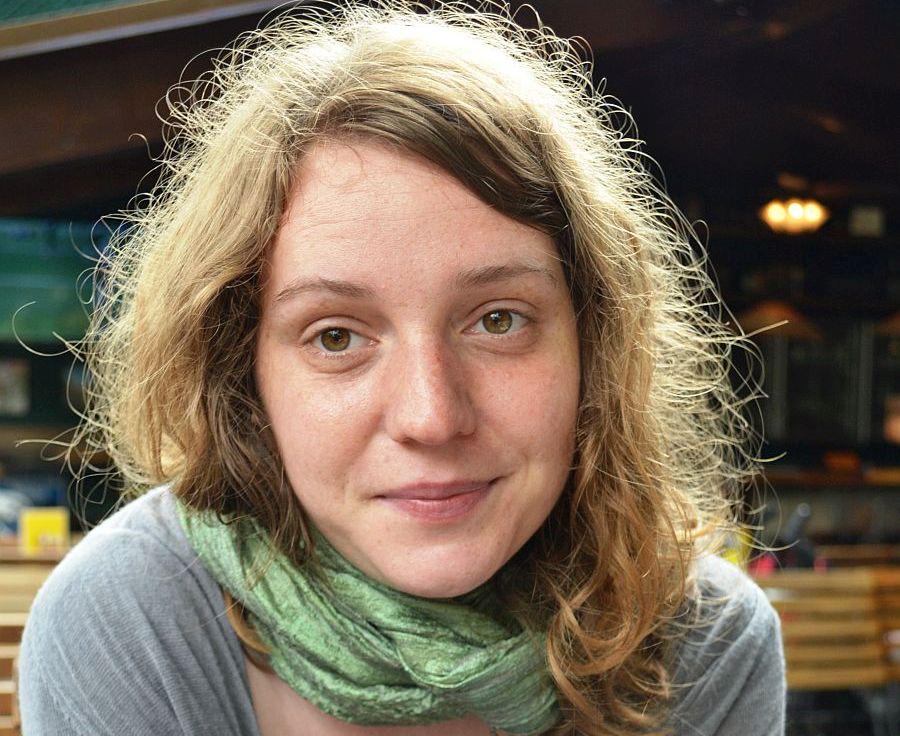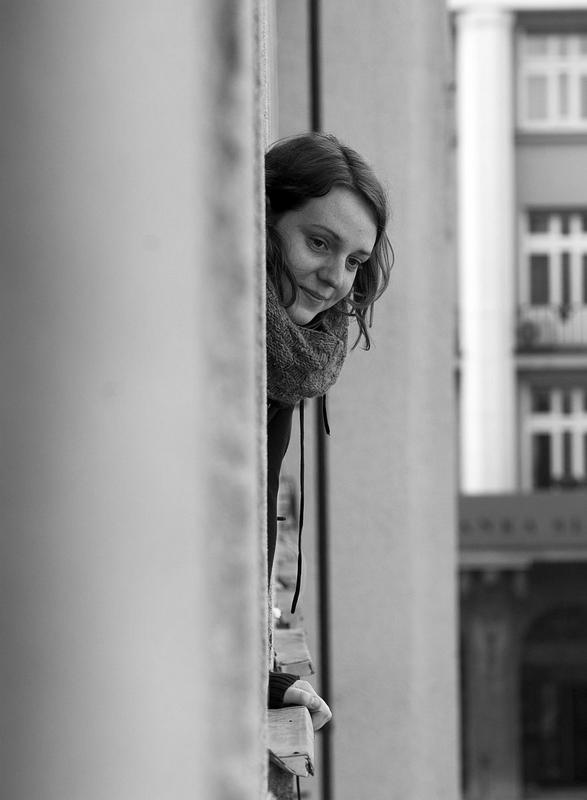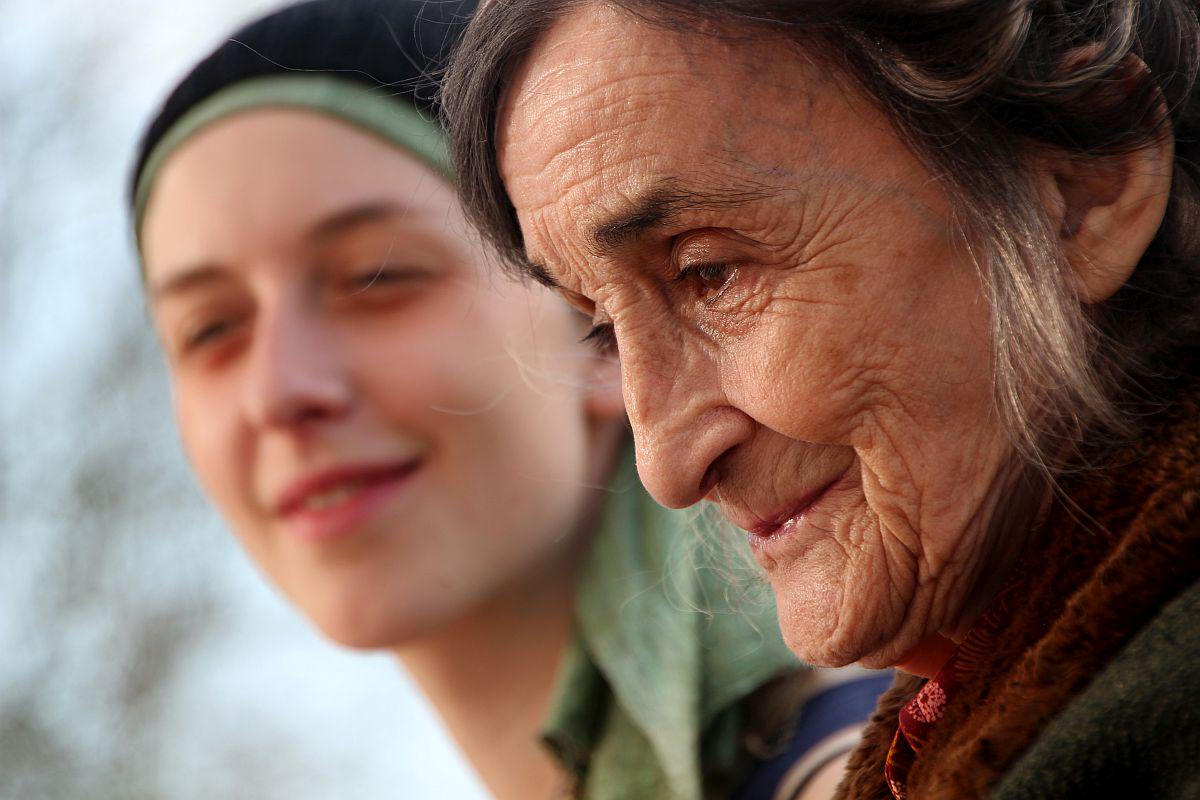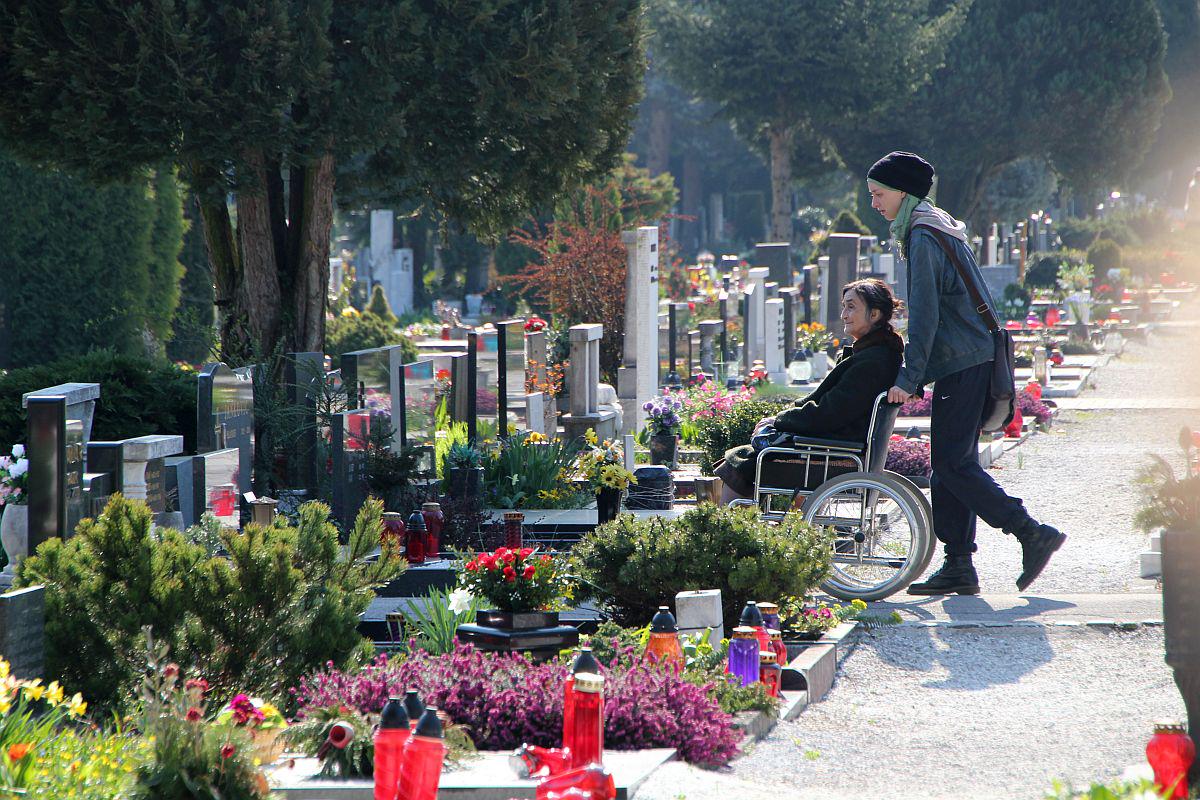




We are all going to die, sooner or later. Do we have time in our busy lives to consider death? Katarina Morano's short film Where to (Kam) deals with that topic; it is the story of a chance meeting between a young and an old woman who spend a day together, bound by the basic, eternal subject – life and death.
The film Where to (Kam) has been nominated for the student Oscar in the foreign film category of the Student Academy Awards. Katarina has also won two Prešeren awards UL AGRFT, and an award at the international film festival Kinoproba. The postgraduate student of film directing at AGRFT had the first serious close encounter with film in her second year of study with the film on Benjamin, an autistic boy. She says that film set her guidelines for future. She likes details. When watching a film she perceives it with smell, hearing, and sight – and feels it.
Human suffering is considered the best incentive for superior works of art. Was the illness of your cousin the motive, and the drive for your short film Where to?
The process of creation always derives from experiences. And that's how it should be, if you wish to create something personal, intimate. The things I experienced most certainly influenced me. My cousin's illness remained with me, and I had to process it. But the story of the film Where to is not her story, it doesn't speak about her, but it is my reflection on death and on dying. The film is based on the feelings I experienced at that time, on the peace I felt when talking to her, and when we were together. I drew from her tranquillity and her power.
Did the shooting of the film have a therapeutic role for you?
Absolutely. The screenplay came from the deepest place hidden inside me. The process started two months earlier, during my conversations and rehearsals with Ivanka Mežan and Lara Vouk. I think these conversations helped me a lot. Later, during the shooting, a lot of incredible things happened. During the time we were shooting I occasionally got up earlier, made coffee and lighted a cigarette on the balcony, and suddenly I felt a presence, a kind of peace. It probably sounds weird, but I can't explain it in any other way. I talked about it a lot with my family. My relatives are very supportive – my aunt, my mother, my father, my uncle, my brother. It was very important to me.
A chance meeting of two women, an old one and a young one, tells to the spectator that the worldly matters are multigenerational, and that the dividing lines between the elderly and the young can be artificially made, and culturally constructed. Can the inhabitants of Slovenia boast of intergeneration solidarity?
The times we live in leaves us very little time for the people close to us, due to so many errands and the forced haste. My granny lives in a nursing home, and I visit her as often as possible, but still I have guilty conscience. But when I am there, the time stops for me – there only the essential remains. These are the feelings I want to explore in film as well – the closeness; how can two strangers make each other's day just by saying 'hello' to each other. Sometimes I miss learning from the elderly. When I compare myself to my older colleagues, I notice they have a lot of knowledge to give, from which we young people could benefit, but we don't take it. And yet the older and the young generation don't live parallel lives, we deal with the same things!
The scenes and the editing of the film address the spectators' deepest feeling, along with the convincing music. Once you said that you find an editing studio similar to a church – and that during editing you cry at least once.
There are certain moments in life, or certain situations, when nothing but the present reality exists. That's in editing. While writing a screenplay, and later during the shooting, you have an idea of the result. While editing you have what you have. I might have wished for something else, but this is what I got – therefore editing is the moment of truth, and there I am alone with myself. And if you are lucky enough you work with a good editor, who won't let you go astray. Editing studio is a place where you must be honest with yourself. If often hurts, but at the same time it is always purifying. Crying cleanses, your expectations are somehow released, and you accept what you get. You have to reconcile yourself to it. That's why I love editing.
You have chosen AGRFT by coincidence rather than by a premeditated decision. Have you always dreamed of being a film director?
A lot of students coming to AGRFT have already made films in elementary and secondary school, and they know what they want. I am one of those who didn't; I came to this faculty by coincidence. At first I chose art history, but I stuck to it for two months exactly. I couldn't face that anthill, the infinite quantity of data, and the impersonality of the study. I took the next two years for myself, and did everything else but study. One day I told my mother that I started lacking the power to concentrate, that I needed something to stimulate my brain; I felt something was missing, and my mental shape was poor! While I was spending some time with a friend, my mother called and told me it was the last day for enlisting to faculties. »Well, it’s too late,« I said to myself, but my friend reminded me I could enlist through the web. So we clicked the right page, and checked the possibilities. I wanted something involving not only theory, and when I noticed the AGRFT site, I finally realized that films were not only something to watch and admire, but that you can actually make them yourself!
You touched one of the deepest life topics – death, and transience of life. In your film you play with sun rays which come and go, there is light and dark, life and death – just as in human life. Are we afraid of death? Do you agree that it is difficult to accept?
I think there is no rule. I believe many a person is not afraid of death, but for myself I must say that I fear it. I have not yet resolved the concept of death for myself. I think a lot about it. The fact that I fear death came as a surprise to me. Perhaps the multitude of everyday things we need to deal with in our busy lives remove us from the primary things, which death most certainly is.
You are a promising young director. Igor Koršič, professor at the Academy of Theatre, Radio, Film and Television wrote that you had everything the great directors have, i.e. a number of attributes characteristic for mature, appreciated film creators. What are your plans for future?
Future still remains a foreign concept to me. It is difficult to catch. I have no idea about my future. I do have plans, however – I intend to become more active, to stop waiting, as it seems to me that our generation has nothing to wait for.
Nina Meh
Translated by G. K.

































































